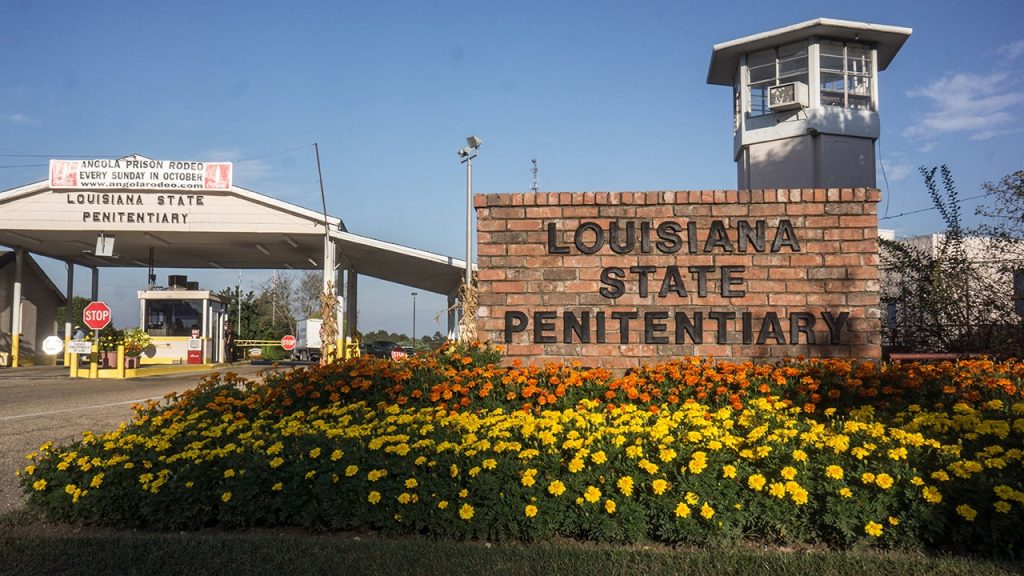“Louisiana Lockup”: A Controversial Immigration Detention Facility
The Department of Homeland Security (DHS) is actively countering media reports about alleged mistreatment of detainees at “Louisiana Lockup,” a specialized ICE detention facility housed within Angola Prison in West Feliciana Parish. This facility, established under Louisiana Governor Jeffrey Landry’s administration, has become a focal point in the national immigration debate. Governor Landry has taken a hardline stance, warning that “criminal illegal aliens” should consider Louisiana Lockup as “where your time in America ends.” The facility operates as a counterpart to a similar detention center in Florida colloquially known as “Alligator Alcatraz,” reflecting the increasingly tough approaches some states are taking toward immigration enforcement.
According to DHS officials, Louisiana Lockup houses more than 70 individuals with violent criminal backgrounds, including 26 convicted child predators, 20 other sex offenders, and 28 convicted murderers. The department has highlighted specific detainees to illustrate their point, including Manna Massaquoi of Liberia (convicted of aggravated assault), Raymond Louis of Haiti (convicted of assaulting a police officer), Jose Gonzalez-Suarez of Cuba (a homicide convict), and numerous others with convictions ranging from rape to sexual exploitation of minors. These details are being emphasized by DHS to counter what they characterize as misleading media narratives about the facility and its occupants. Tricia McLaughlin, an Assistant Secretary at DHS, pointedly asked why media outlets seem “obsessed with peddling false sob stories of pedophiles, murderers, rapists, and other violent criminals.”
The controversy has intensified as mainstream media outlets have published reports alleging inhumane conditions at the facility, including claims of hunger strikes and sexual misconduct complaints that supposedly went unaddressed. DHS officials vehemently deny these allegations, with a spokesperson telling Fox News Digital that claims about lack of access to medical or mental health care are “completely false.” According to the department, detainees have “full access to medical treatment, three proper meals per day, legal counsel, and other essential items.” McLaughlin specifically addressed the hunger strike allegations, flatly stating there is “no hunger strike at Louisiana Lockup” and expressing frustration at what she described as the media repeating “unsubstantiated, false allegations peddled by criminal illegal aliens.”
The Louisiana Lockup represents a new approach to immigration detention that explicitly focuses on individuals with serious criminal convictions who are in the country illegally. This approach has gained support from local political figures like Representative Julia Letlow, a Republican who represents the district containing Angola Prison. Letlow has praised the initiative, stating that Louisiana is “leading the way” in addressing illegal immigration concerns. The facility’s establishment comes amid broader national debates about immigration policy, enforcement priorities, and the treatment of detainees in government custody. It reflects an increasingly assertive stance by some state governments working in conjunction with federal authorities on immigration enforcement matters.
The DHS’s aggressive pushback against media reporting highlights the politically charged nature of immigration detention policies. While officials emphasize the criminal backgrounds of those being detained, critics have raised concerns about conditions of confinement and adherence to detention standards. The department’s response suggests frustration with what they perceive as misleading characterizations of their work, with McLaughlin noting that comprehensive medical care has been standard practice “from the moment an alien enters ICE custody” for years. The confrontational tone of DHS officials indicates the high stakes of the public relations battle surrounding immigration enforcement, particularly when it involves facilities like Louisiana Lockup that are designed specifically for individuals with criminal convictions.
This controversy unfolds against the backdrop of broader immigration debates, including legislative efforts like the bipartisan initiative to protect approximately 250,000 “Dreamers” from deportation, as well as new enforcement partnerships like the joint state-federal checkpoint operations being conducted in Alabama that have resulted in numerous detentions. The Louisiana Lockup, situated just downriver from Natchez, Mississippi, has become a symbol of one approach to immigration enforcement—focused on those with criminal convictions and designed to send a message about the consequences of criminal activity by non-citizens. As the facility continues to operate and media scrutiny persists, it will likely remain a flashpoint in the ongoing national conversation about immigration policy, enforcement priorities, and the treatment of detainees in government custody.


